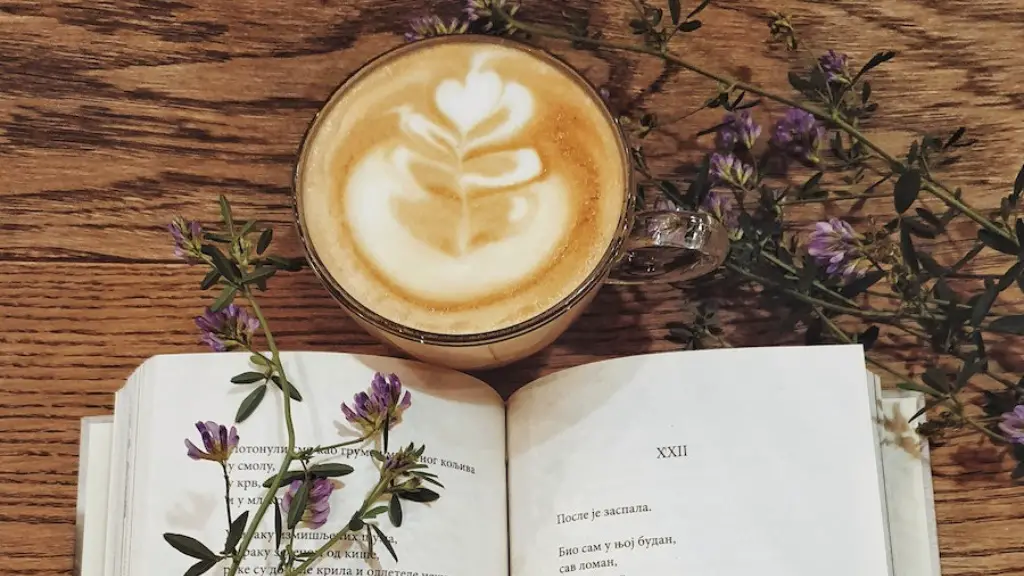Poetry is an integral part of society and its influence reaches into all areas of our lives. It has an ability to reveal, evoke and inspire. Poetry can help people understand and contemplate their lives, their relationships and their society in ways that other forms of writing cannot. The power of poetry lies in its ability to communicate feelings and ideas in a way that is often profound and immediate, and its presence can be felt in the everyday lives of people around the world.
The power of poetry to affect individuals is undeniable. Its ability to move people emotionally is particularly potent. Whether it is a melancholic reflection, a joyous celebration or a powerful political statement, poetry can allow readers to experience and understand their own emotions in a way that can be profoundly transformational. It can form connections between different people and different generations, providing moments of empathy, understanding and solidarity.
Poetry has the power to shape how society views the world. It has been used to challenge assumptions, to draw attention to inequities and to call for justice and change. Across cultures and countries, it has been used by authors and poets to protest and protest against oppressive regimes and state sanctioned violence, to reject injustice and express solidarity with those who suffer.
Additionally, poetry has the power to express ideas and feelings that many people find too difficult or painful to express in any other way. It can be used to communicate hope and resilience, to provide inspiration and strength, to heal and to commemorate. It has been used to express our shared humanity and to find connection in the midst of adversity.
In today’s society, the impact of poetry is still deeply felt. It has an enduring presence in literature, art and music, continuing to inspire and provoke thought. It can spark conversations and offer a different perspective of the world, offering the potential for change and growth. Poetry provides an outlet for creativity and meaningful expression for individuals, and collectively can be a powerful force for social change.
Impact on Language Development
Poetry also plays an important role in language development. It helps to enrich language, providing creative ways to express feelings, ideas and emotions. Poetry often uses figurative language, imagery, metaphor and other creative elements to bring language to life. This can help to stimulate the language development of young children, develop vocabulary and boost creativity.
By engaging with poetic language, children can gain a deeper understanding of the power of words and their ability to convey meaning. Poetry can be an effective tool in helping children learn about different cultures and explore their own identity. When encountering different languages, poetry can also help children develop an appreciation for the language and explore its unique music, rhythms and tones.
By engaging in the creative process of writing poetry, children can develop important self-regulation skills and better understand the creative process. They can learn how to express themselves artistically, develop critical thinking skills and gain self-confidence.
For adults, poetry can also act as a powerful form of self-expression and exploration. Its musical structure and lyrical poetry can transport readers to different places and times, allowing them to confront difficult ideas and explore different perspectives. By engaging with poetry, adults can experience a heightened sense of self-awareness and growth.
By participating in activities based around poetry, both adults and children alike can develop communication and collaboration skills. They can learn how to work together to create something unique, discover new power in their own words and develop the courage to express their own thoughts and stories.
Power of Performance
The power of poetry is further highlighted in its iteration through performance. Performance poetry allows people to explore, express and move beyond emotions and ideas that they may not have the opportunity to do so in any other form. This often provides a sense of community, providing the opportunity to reflect together and find solace in shared experience.
Performance poetry also has the potential to create powerful connections between people and instill new perspectives. It creates a powerful platform to share personal stories, perceptions and life lessons, often inspiring and educating audiences in the process.
Through performance, poetry also has the potential to reach wider and more diverse audiences. This can bring poetry to environments where it may not naturally exist and reach people who may not have the opportunity to engage in it through other means. By delivering poetry to a wider audience, the power of its messages can be amplified and further spread.
Additionally, performance poetry gives audiences the opportunity to connect with the artist and find comfort in shared experience. It also encourages interaction and participation, creating an open space for people to come together, learn from one another, share stories and build understanding.
Performance poetry also allows people to engage with poetry through the use of their bodies. Utilising a combination of the spoken word and physicality, performers create and move through spaces, often delivering powerful messages and injecting new energy into the words.
Impact on Mental Health
Poetry also has the power to improve mental health and wellbeing. By helping people to express difficult emotions, engage with their inner thoughts and gain perspective on their lives, poetry can offer a powerful outlet for self-expression.
It can offer the opportunity to connect and communicate with the world around us. When shared, poetry can allow us to communicate our thoughts and feelings to others, allowing us to receive support, empathy and understanding from our peers.
Poetry has been found to be particularly effective for mental health recovery. It encourages self-reflection and has been shown to help people manage their emotions better by providing an avenue for catharsis. The writing of poetry can be an especially powerful tool for people to express and explore difficult emotions in a safe and secure space.
Additionally, poetry can offer the opportunity to discover a new appreciation for life. Through its power to evoke imagery and feelings, poetry can create remarkable moments of beauty and insight. It can be a source of solace and comfort, helping people to transcend their troubles and find inspiration and joy in simple moments of life.
The impact of poetry on mental health and wellbeing is clear. It can be a powerful motivational and creative tool, used to express difficult feelings and to provide comfort and solace. With its ability to evoke emotion and imagination, poetry also has the potential to help people heal and create more meaningful lives.
Power of Storytelling
Poetry can also be used as a powerful tool for storytelling. Through the use of metaphor, imagery and emotion, poetry can bring to life unique and inspiring stories. This can help to create bonds between people and foster empathy, understanding and solidarity. It can also help to open doors of opportunity, allowing us to share our experiences, grow and create meaningful connections.
Poetry has long been used to articulate the experiences of marginalised and oppressed people, often providing a voice to those who are not heard. It has been used to tell stories of strength, resilience and resistance that would otherwise go unheard. By helping to communicate difficult messages and ideas in an accessible way, poetry can help to bridge divides, foster mutual understanding and bring people together.
Through its use of creativity and language, poetry can also be used to explore different perspectives and open people up to new ideas and possibilities. It can give us the courage to confront uncomfortable truths and to create positive social impact. By using powerful stories, poetry can provide a platform for change and help to create a better world for all.
The power of storytelling cannot be underestimated. Poetry has a unique ability to bring stories to life and to evoke emotion and understanding. By engaging with stories through poetry, we can gain a deeper appreciation of life, foster empathy and learn to appreciate our shared humanity.
Power of Words
Finally, the power of words lies at the heart of poetry. By drawing on the power of language, poetry can communicate ideas and feelings in ways that are often profound and immediate. The power of words is undeniable and its presence in our lives is inescapable. Through poetry, we can be inspired to confront our own personal truths, explore our emotions, expand our perspectives and take action for social change.
By engaging with poetry, we can also gain a deeper appreciation of the power of words, allowing us to understand and express our own thoughts and ideas and to create new philosophical inquiries.
The power of words is further enhanced by the poetic structure. The poet often chooses their words carefully, crafting them into a unique form of expression. The structure of the poem can be used to add depth and meaning to otherwise simple words, creating a powerful, emotive experience.
Poetry can also offer the opportunity to explore and capture different worlds and experiences. Through its evocative imagery and lyrical tones, poetry can delve deep into our inner worlds, allowing readers to dive into their imagination and experience them in ways that are often impossible in the real world.
The power of words is perhaps greatest through the power of storytelling. Through poetry, we can craft stories, share experiences and articulate feelings that we may not have the opportunity to express in any other way. By engaging with words through poetry, we can create powerful moments of understanding, connection and growth.





